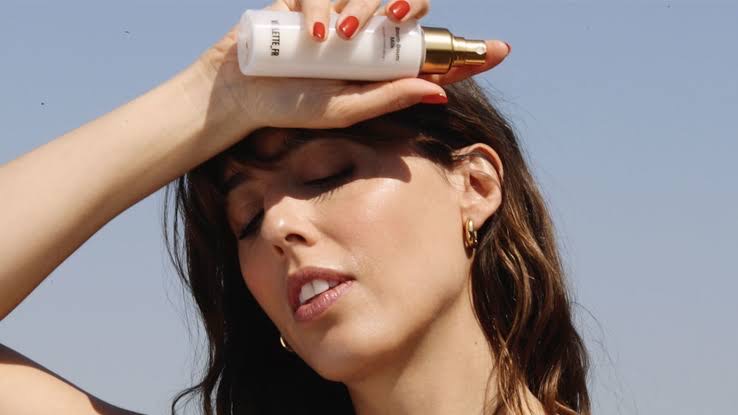Menthol, a natural compound derived from peppermint or other mint oils, is renowned for its cooling and soothing properties. Widely used in skincare and medicinal products, menthol provides a refreshing sensation that offers relief from various skin ailments. This article explores the effects of menthol on the skin, its benefits, potential drawbacks, and how to incorporate it into your skincare routine effectively.
What is Menthol?
Menthol is an organic compound obtained either synthetically or from mint plants, particularly peppermint. Its chemical structure gives it the unique ability to activate the TRPM8 receptors in the skin, which are responsible for sensing cold. This activation results in a cooling sensation, even though menthol does not actually lower the skin’s temperature.
Benefits of Menthol for the Skin

Cooling and Soothing
Menthol’s most notable effect is its ability to provide a cooling sensation, making it highly effective in soothing irritated or inflamed skin. This makes menthol a popular ingredient in products designed to relieve sunburn, insect bites, and minor skin irritations. The cooling effect helps to numb the skin slightly, reducing discomfort and itching.
Pain Relief
Menthol is commonly used in topical analgesics and pain relief creams due to its mild anesthetic properties. It helps to alleviate pain by creating a cooling effect that can distract from the sensation of pain, making it useful for conditions such as muscle aches, sprains, and arthritis.
Anti-Itch
The cooling and numbing properties of menthol can significantly reduce itching caused by various conditions, including eczema, psoriasis, and insect bites. By calming the skin, menthol helps to break the itch-scratch cycle, which can exacerbate skin issues.
Antimicrobial Properties
Menthol has mild antimicrobial properties that can help to keep the skin clean and prevent infections. This makes it a beneficial ingredient in products like cleansers and mouthwashes, where it helps to reduce the presence of bacteria and maintain hygiene.
Decongestant
Menthol is frequently used in chest rubs and inhalants to relieve congestion and respiratory discomfort. When applied to the chest or inhaled, it helps to open up the nasal passages and improve breathing, which can indirectly benefit the skin by reducing stress and improving overall well-being.
Potential Drawbacks and Considerations
While menthol offers numerous benefits, it is important to be aware of potential drawbacks and use it appropriately.
Skin Irritation
Menthol can cause irritation, especially in individuals with sensitive skin or when used in high concentrations. Symptoms of irritation include redness, burning, and stinging. It is crucial to perform a patch test before using products containing menthol, particularly if you have sensitive skin.
Allergic Reactions
Although rare, some individuals may experience allergic reactions to menthol. Symptoms can include itching, swelling, and hives. If you experience any of these symptoms, discontinue use immediately and consult a healthcare professional.
Overuse
Excessive use of menthols can lead to desensitization of the skin, reducing its effectiveness over time. It is important to use menthol-containing products as directed and avoid applying them too frequently.
Incorporating Menthol into Your Skincare Routine
Menthols can be found in various skincare and medicinal products. Here are some common applications and how to use them effectively:
Topical Analgesics
Menthols are key ingredient in many pain relief creams and gels. Apply these products to the affected area as directed, usually 3-4 times daily, to relieve muscle and joint pain.
Cooling Gels and Lotions
For sunburn or general skin irritation, menthol-infused gels and lotions can provide soothing relief. Apply these products gently to the affected area and allow them to absorb fully.
Lip Balms
Menthols are often included in lip balms for its cooling and soothing properties. Apply to the lips as needed to keep them moisturized and to reduce discomfort from chapping or cold sores.
Decongestant Rubs
Chest rubs containing menthols can be applied to the chest and throat to relieve congestion. These products can be used before bed to improve breathing and promote restful sleep.
Cleansers and Toners
Menthols can also be found in cleansers and toners, where it helps to refresh and cleanse the skin. Use these products as part of your daily skincare routine to maintain clear and healthy skin.
Menthols are versatile and effective ingredient in skincare and medicinal products, known for its cooling, soothing, and pain-relieving properties. When used appropriately, it can provide significant relief from various skin conditions and discomforts. However, it is essential to be mindful of potential irritation and allergic reactions, particularly for those with sensitive skin. By incorporating menthol-containing products thoughtfully into your routine, you can harness its benefits to maintain healthy, comfortable skin.


Pingback: Skincare Routine for Dark Skin Women - SimplExplainer